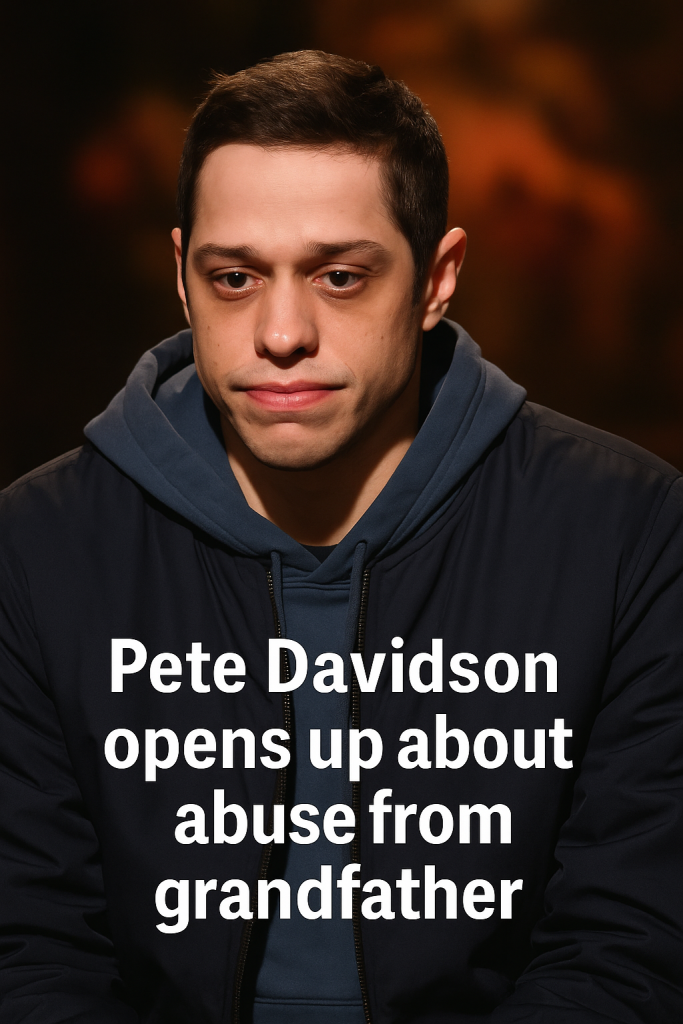Comedian and actor Pete Davidson has made a shocking revelation about his troubled relationship with his grandfather, unveiling a dark chapter of abuse from his past that has left fans stunned. In a recent candid interview, Davidson opened up about the emotional and physical abuse he suffered at the hands of his grandfather, sharing raw details that shed light on his complex feelings toward the family member.
Davidson didn’t hold back, describing not only the pain he endured but also his current emotions, which many would find unsettling. He notably expressed being “thrilled” by the news of his grandfather’s declining health—a stark admission that underlines a deeply fraught and toxic connection.
The comedian, known for his brutally honest and often vulnerable takes on life, revealed the abuse began during his childhood, shaping much of his early experiences and reflected in his ongoing struggles with mental health. While Davidson has previously spoken about trauma and personal hardships, this is one of the first times he has explicitly identified a specific family member as a source of abuse.
“I want him to die slow,” Davidson reportedly stated, a phrase that highlights the intensity of his unresolved anger and hurt. The statement is not just a headline-grabbing soundbite—rather, it represents the lingering impact of deep-seated trauma. Experts note that victims of familial abuse frequently wrestle with conflicting emotions, ranging from rage to pain, and sometimes months or even years are needed to fully process such experiences.
This revelation adds a new layer to understanding Davidson’s public persona. His sharp wit and self-deprecating humor, long celebrated by fans, often mask profoundly difficult personal history. Davidson has candidly talked about his battles with depression, PTSD, and borderline personality disorder in the past, and his disclosure about his grandfather may offer clearer context about some of his struggles.
The interview comes amidst heightened awareness of abuse survivors speaking out about the suffering inflicted by family members—a painful but necessary conversation that shines a light on the dark realities many endure in silence. Davidson’s willingness to share his story publicly might encourage others, especially younger audiences, to confront and seek help for their own experiences of abuse.
Despite the bitterness he expressed, Davidson also hinted at the complexity of familial pain, acknowledging that his feelings are a tangled mix of hurt and anger rather than simple hatred. His story illustrates how abuse within families often produces fractured relationships, leaving scars that are not easily healed.
As Davidson continues to pursue a thriving entertainment career, his openness about these vulnerabilities contributes to a growing cultural dialogue around mental health and abuse recovery. This recent disclosure is yet another step in his ongoing journey to reclaim his narrative and raise awareness.
Fans and followers are responding with a mix of support and empathy, urging compassion and understanding for Davidson’s experience. As more public figures share their personal hardships, the hope is that stigma and silence around family abuse will continue to diminish.
For now, Pete Davidson’s bold honesty offers a powerful reminder: behind the laughter and fame often lies a complicated, sometimes painful backstory.



